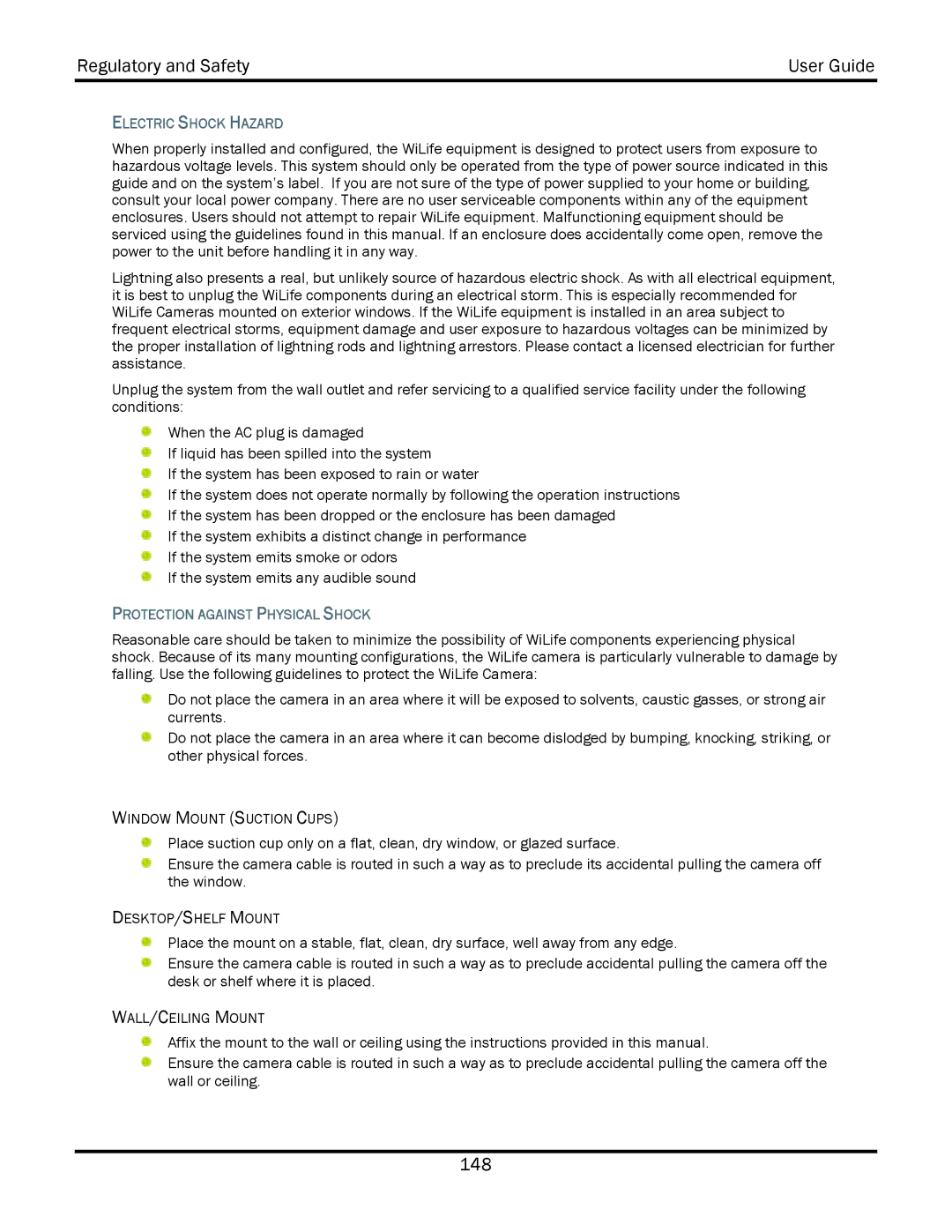
Regulatory and Safety | User Guide |
|
|
ELECTRIC SHOCK HAZARD
When properly installed and configured, the WiLife equipment is designed to protect users from exposure to hazardous voltage levels. This system should only be operated from the type of power source indicated in this guide and on the system’s label. If you are not sure of the type of power supplied to your home or building, consult your local power company. There are no user serviceable components within any of the equipment enclosures. Users should not attempt to repair WiLife equipment. Malfunctioning equipment should be serviced using the guidelines found in this manual. If an enclosure does accidentally come open, remove the power to the unit before handling it in any way.
Lightning also presents a real, but unlikely source of hazardous electric shock. As with all electrical equipment, it is best to unplug the WiLife components during an electrical storm. This is especially recommended for WiLife Cameras mounted on exterior windows. If the WiLife equipment is installed in an area subject to frequent electrical storms, equipment damage and user exposure to hazardous voltages can be minimized by the proper installation of lightning rods and lightning arrestors. Please contact a licensed electrician for further assistance.
Unplug the system from the wall outlet and refer servicing to a qualified service facility under the following conditions:
When the AC plug is damaged
If liquid has been spilled into the system
If the system has been exposed to rain or water
If the system does not operate normally by following the operation instructions
If the system has been dropped or the enclosure has been damaged
If the system exhibits a distinct change in performance
If the system emits smoke or odors If the system emits any audible sound
PROTECTION AGAINST PHYSICAL SHOCK
Reasonable care should be taken to minimize the possibility of WiLife components experiencing physical shock. Because of its many mounting configurations, the WiLife camera is particularly vulnerable to damage by falling. Use the following guidelines to protect the WiLife Camera:
Do not place the camera in an area where it will be exposed to solvents, caustic gasses, or strong air currents.
Do not place the camera in an area where it can become dislodged by bumping, knocking, striking, or other physical forces.
WINDOW MOUNT (SUCTION CUPS)
Place suction cup only on a flat, clean, dry window, or glazed surface.
Ensure the camera cable is routed in such a way as to preclude its accidental pulling the camera off the window.
DESKTOP/SHELF MOUNT
Place the mount on a stable, flat, clean, dry surface, well away from any edge.
Ensure the camera cable is routed in such a way as to preclude accidental pulling the camera off the desk or shelf where it is placed.
WALL/CEILING MOUNT
Affix the mount to the wall or ceiling using the instructions provided in this manual.
Ensure the camera cable is routed in such a way as to preclude accidental pulling the camera off the wall or ceiling.
148
